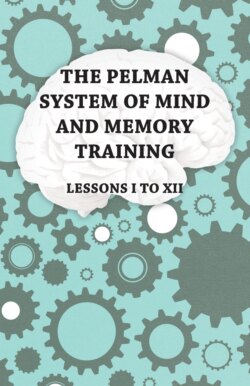Читать книгу The Pelman System of Mind and Memory Training - Lessons I to XII - Анон - Страница 22
На сайте Литреса книга снята с продажи.
VII. IS THE MIND A FUNCTION OF THE BRAIN OR IS IT SOMETHING HIGHER?
Оглавление16. We have spoken of the body and the brain and have made passing reference to the mind. We have now to consider briefly one of the most keenly contested questions in psychology. Is the mind merely a function of the brain? Does it secrete thought as the liver secretes bile? Or does the mind possess a separate existence, using the brain as the instrument of its expression? The physical brain consists of three main portions, the forebrain (cerebrum) which is probably concerned chiefly with thought; the little brain (cerebellum) situated behind and somewhat below the forebrain, and probably concerned mainly with the maintenance of equilibrium, the balance of the body, and certain forms of motion; and the oblong marrow (medulla oblongata) or spinal bulb, which is the centre to which converge the nerves of the body. In the fore-brain are many millions of small cells and certain prolonged indentations or channels, and it is commonly believed that there is a close relationship between thought and these cells and channels. Materialists maintain that thought is nothing more than an activity of the brain cells stimulated by the senses or by other means. The idealists argue that thought is primarily a function of an immaterial mind which subsequently conveys to the brain the thought that it has conceived. Each theory presents difficulties, and for the practical purpose of this Course of Training it is quite unimportant which hypothesis is adopted.
